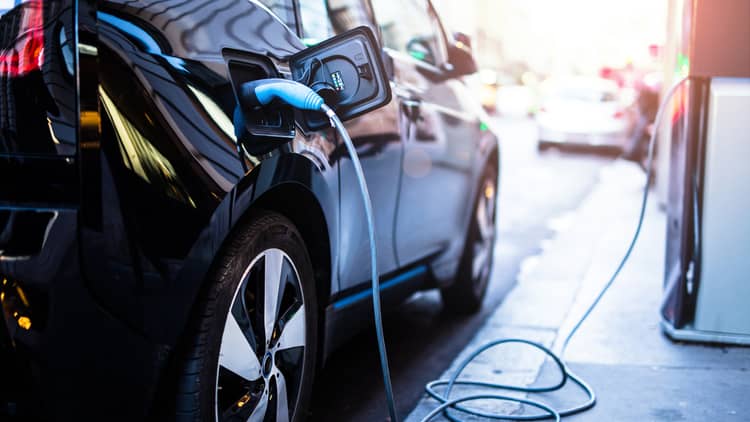All You Need To know about Electric Vehicle Insurance

Since information has spread about the negative environmental effects caused by the widespread use of traditional vehicles like cars and bikes, more and more individuals are opting to switch to cleaner, more efficient alternatives like electric vehicles.
What, exactly, is an Electric Vehicle (EV)?
Regular vehicles run on fuel, while electric vehicles run on rechargeable batteries. This is the fundamental difference between the two. EVs fall into three categories: conventional hybrids, plug-in hybrids, and battery-electric vehicles.
- Conventional Hybrid Vehicles (HEV) are fuelled by both gasoline and electricity.
- Battery-Electric Vehicles (BEV) are electric vehicles that are powered by batteries. This sort of electric vehicle has no alternative source of propulsion besides motors and batteries.
- Plug-in Hybrid Electric Vehicles (PHEV) are electric automobiles that can recharge batteries using regenerative braking.
Benefits of having an electric car insurance policy
Electric cars and bikes have elevated the commuting experiences of Indians. With advantages such as noiseless driving, pollution-free commuting, and significant savings from eliminating gasoline and diesel usage, it’s no surprise that they are rapidly replacing conventional modes of transportation.
Nevertheless, the vehicle owner must pay extra for the added features. For example, because the construction of these vehicles happens with complex technology, their repair involves the engagement of specialists and an increase in repair expenses. Similarly, the batteries and other specialised components of these automobiles and bikes are expensive, meaning a high replacement cost.
In such a circumstance, having a car insurance policy might save you from experiencing financial hardship in the event of damage or depreciation.
Regardless of the electric vehicle you choose, you should buy electric vehicle insurance for the following reasons:
- The motor vehicles act of 1988 covers the legislation about motor vehicles in India. The law requires third-party car insurance for cars to operate legally on public roads. Failing to do so may lead to heavy fines from the traffic police. *
- Third-party liability: Unpredictable driving conditions might lead to collisions or accidents. In the event of an accident claim involving other motorists, pedestrians, or property, you may be responsible for injuries and damages. However, you do not need to worry about financial or legal obligations if you have a third-party liability policy. *
- Protection from damages: In the event of an accident, your vehicle may potentially sustain damage. Anyone with experience with auto repairs knows that they are expensive, especially for electric vehicles. Consequently, an automobile insurance policy may cover the costs of repairing your vehicle, regardless of who caused the accident. *
- Personal accident coverage: Automobile insurance policies provide the insured with personal accident coverage. This component kicks in if the insured passes away or sustains permanent injuries due to an accident. The policy’s beneficiaries may be likely to get the sum assured, which can be used to financially aid the family. *
While electric cars and bikes are still in their infancy in India, it may take some time for them to catch on like their gasoline or diesel equivalents. If you are planning for conversion to an electric car, that is, converting your old car into an electric vehicle, then please speak with a specialist to first understand if your car is conducive to undergo such a transformation. *
And if you are ready to buy a brand new EV, then remember that it only takes a few clicks to buy electric car insurance. *
* Standard T&C Apply
‘Insurance is the subject matter of solicitation. For more details on benefits, exclusions, limitations, terms, and conditions, please read the sales brochure/policy wording carefully before concluding a sale. ‘






